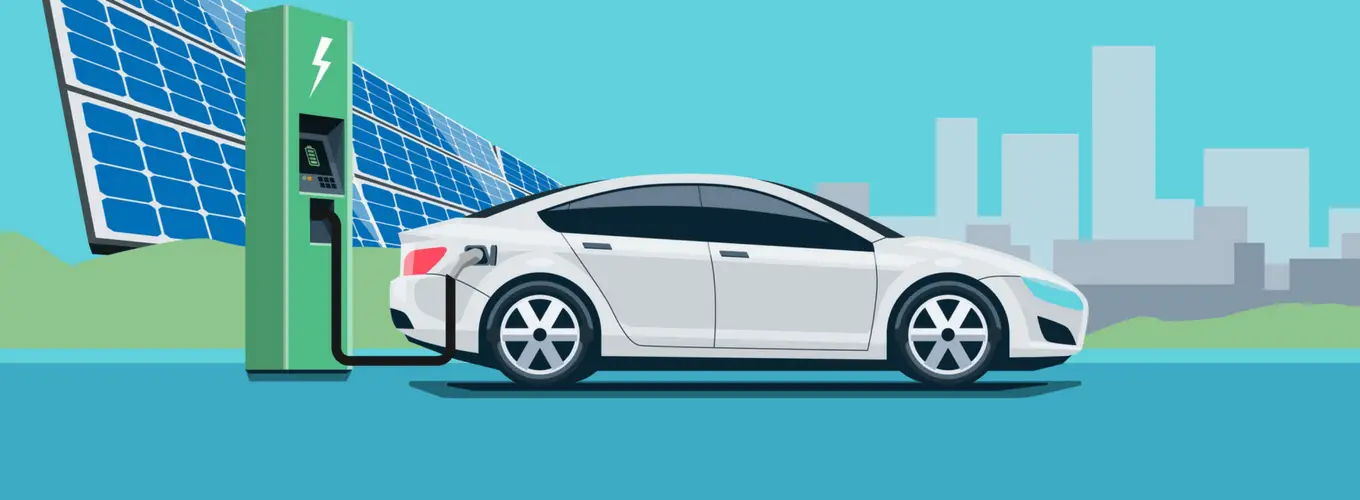Accelerating electric mobility in Nigeria.
Millions of people around the world already drive electric vehicles (EVs), and sales will likely keep booming. The International Energy Agency (IEA) projects that the stock of EVs will hit 145 million by 2030


Millions of people around the world already drive electric vehicles (EVs), and sales will likely keep booming. The International Energy Agency (IEA) projects that the stock of EVs will hit 145 million by 2030 – about 7% of all new and used registered vehicles in that year.
Nigeria is building momentum for EVs too. In June 2021, the Vice President of Nigeria, Yemi Osinbajo, unveiled the first made-in-Nigeria EV – the Hyundai Kona by Stallion Motors. In April, the National Automotive Design and Development Company inaugurated Nigeria’s first EV charging station at Usmanu Danfodiyo University in Sokoto State, North-West, Nigeria. Moreover, EV deployment in Nigeria has the potential to support renewable energy development through a bidirectional charging strategy. EV deployment could also lower emissions, reduce energy sector investments, and potentially remove the need for expensive petroleum subsidies. The benefits are clear, but what are the challenges?
i) High upfront cost: Despite being cheaper on a lifecycle basis, the initial capital outlay of EVs is substantially higher than for internal combustion engine vehicles (ICEVs). Based on a Cox Automotive estimate, the average cost of a new EV is about $55,600 (around ₦23m). This is substantially above the mean annual ₦2m salary earned by ordinary Nigerians residing in Lagos. In order for Nigerians to find the cost of EVs attractive, upfront costs need to fall below the price of used ICEVs, which will be challenging without financial incentives.
ii) Lack of infrastructure & technical know-how: Public EV charging infrastructure is essentially nonexistent in Nigeria, and there is currently no defined roadmap for its future development. Nigerian roadside mechanics are usually informally trained in fixing ICEVs, with little-to-no knowledge of EV maintenance.
iii) Electricity access & reliability gap: Nigeria has the world’s most significant energy access gap, with over 85 million people lacking grid electricity access, and those with access usually lacking the reliable supply that EVs require. The dilemma for Nigerian decision-makers is whether to prioritize a limited electricity supply for EV services when they already struggle to ensure reliable essential services, such as lighting.
iv) Political entrenchment of oil & gas: Nigeria gets over 90% of its foreign revenues from exporting crude oil, making the future of fossil fuels a major concern. As the global EV market continues to mature, Nigerian policymakers could worry about negative impacts on Nigeria’s crude oil exports to Europe and Asia, as well as reduced local demand. This is not a trivial concern; in April 2019, the Nigerian senate rejected a bill to phase out fossil fuel vehicles by 2035 on account of the political-economic realities of the oil & gas sector.
In order for Nigeria to gain momentum in electric vehicles there is a need to initiate the following strategies:-
i) Develop a comprehensive EV policy: While Nigeria’s automotive vehicle policy encourages local production and support of domestic vehicle manufacturers, it is silent on EV development. To start any meaningful conversation on EV deployment in Nigeria, the government needs to establish a robust EV policy framework with targets and guidelines backed by an appropriate act of parliament.
ii) Tap into the used EV market: One way to lower the upfront cost of EVs is to import used vehicles from other countries. EVs do not produce any tailpipe emissions irrespective of their age, compared to ICEVs where emissions intensity can increase over time and with lack of maintenance. Nigeria could use its preexisting framework for used vehicle importation to promote the importation of used EVs into the country.
iii) Introduce innovative business models for charging infrastructure: The Nigerian government is already overburdened with the responsibility of providing primary electricity access for the millions without modern energy services. Notwithstanding, the government can liberalize the charging infrastructure market to encourage private sector participation. Experiences from the innovative business models used to accelerate mini-grid development in the country can be applied to EV charging infrastructure to make it viable for investors, consumers, and the government.
iv) Draw from the experience of peers: Countries in East Africa, particularly Kenya, are already investing heavily in two- and three-wheeler EVs because they are cheaper and easier to adopt. Nigeria has a relatively large stock of two- (Okada) and three-wheelers (Keke Napep), mainly used for intra-city commercial transportation. By focusing on these types of EVs, Nigeria could quickly test the viability of EVs in the country. Introducing smaller EVs first can still facilitate the development of numerous charging stations in rural and urban areas and thus reduce the charging infrastructure gap when four-wheeler EVs become prevalent.
v) Fund vocational training: Even higher-income Nigerians who can purchase EVs grapple with the question of availability and access to maintenance services and remain reluctant to buy them. Going forward, the considerable skills gap among EV technicians in Nigeria must be addressed to reduce potential EV consumers’ anxiety around suboptimal maintenance services in the country.
vi) Explore innovative fiscal incentives: High import duties are a primary driver of low vehicle ownership in Nigeria. Fiscal incentives such as the removal of the import duty, a value-added tax, and reduced vehicle insurance for EVs could make EVs more attractive and affordable for Nigerians.
vii) Create partnerships for EV education in Nigeria: To build wider acceptance of EVs, politicians, oil majors, ICEV mechanics, and the Nigerian citizenry all need more reliable information. Credible EV education is needed to avoid potential fear and misinformation on the plausible disruptions and benefits that EVs could bring to the conventional vehicle market and the national economy.
Source:
i) Michael Dioha, Ken Caldeira (2022). ACCELERATING ELECTRIC MOBILITY IN NIGERIA




